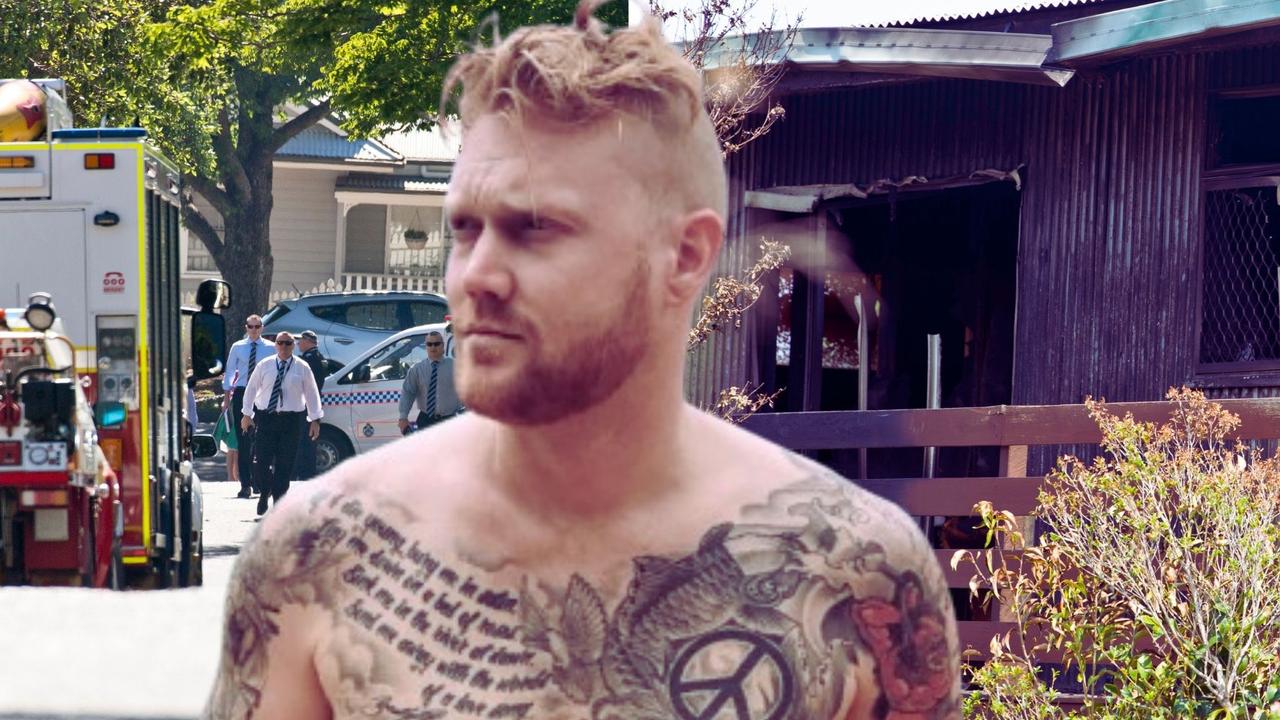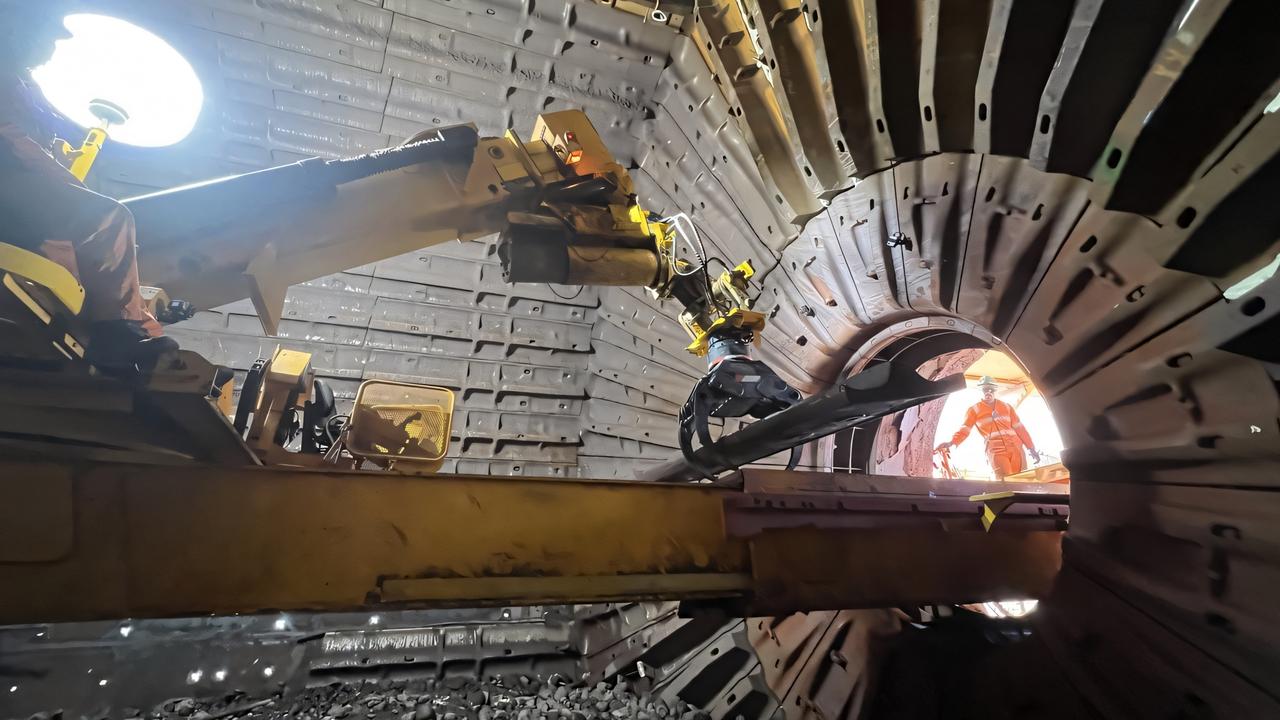Ex-councillor George Ladbrook takes aim at Maranoa Regional Council
Six months after an election which saw the majority of sitting councillor’s ousted, a regional Queensland ex-councillor is asking whether the massive overhaul was in the best interest of the community.

Roma
Don't miss out on the headlines from Roma. Followed categories will be added to My News.
A former Maranoa councillor and Roma businessman, who was ousted at the March local government election, has taken aim at the current council for allegedly unwinding controversial policies.
George Ladbrook was elected as a Maranoa councillor under former mayor Tyson Golder’s group Unity Maranoa in 2020, however at the 2024 election, he and three colleagues were voted out.
Before the election, Unity Maranoa councillors made up the majority of the council, occupying five seats at the table.
Now, only John Birkett remains, after Mr Golder, Mr Ladbrook Julie Guthrie and Mark Edwards were all turfed by voters.
Six months on and Mr Ladbrook says the new council lineup was dismantling policies that he and his former colleagues introduced to help the region prosper.
He said while he was on council, salaries were stable and rates frozen.
Pay rise
Mr Ladbrook said the new council quickly resolved to adopt a “pay rise”.
“An increase in pay was put forward to the previous council and was voted against,” he said.
In their May 24, 2024 ordinary meeting, the Maranoa Regional Council resolved to adopt the remuneration schedule as suggested by the Local Government Remuneration Commission.
Between 2019 and 2023, councillors had resolved to not adopt the suggested remuneration schedule. In that period, the mayor earnt $130,584 per year, the deputy mayor earnt $81,615 per year, and councillors earnt $69,372 per year.
This would suggest that between 2019 and 2023, council would have spent $697,803 on total councillor remuneration. In their annual reports for those years, council reported an annual spend of upwards of $780,000 on councillor remuneration.
The current council’s adoption of the recommended remuneration will see councillors earn $77,688 per year, the deputy mayor earn $91,399, and the mayor earn $146,239, which is a significant jump from the salary adopted in 2019.
A spokesman for the state government Department of Housing, Local Government, Planning and Public Works said the maximum remuneration for councillors in Queensland, excluding the Brisbane City Council, was set by the independent Local Government Remuneration Commission.
“Individual councils are responsible for making decisions about whether to set mayor and councillor salaries up to the maximum remuneration level set by the Commission and must pass a council resolution to do so,” the spokesman said.
“Councils are unable to set mayor or councillor remuneration at a level greater than the maximum level as determined by the remuneration schedule outlined in the commission’s annual report.”
Councillor’s retreat
Another reservation of Mr Ladbrook’s was over the councillors attending a “retreat”.
“The independent (councillors) have decided to go on an all expenses paid retreat, at the expense of the hard-working rate payers of the Maranoa to develop their team,” Mr Ladbrook said.
“It is a disgrace that they can do this.
“Business owners need to go on a retreat to digest this.”
The Maranoa Regional Council said the mayor, deputy mayor, chief executive Rob Hayward, former acting chief executive, and seven councillors were set to spend one night at Mount Hope in Wallumbilla, for a “strategic planning session”.
A council spokesman said the planning session would be an opportunity to amalgamate all the information and feedback the councillors had gathered during community forums held in 16 towns across the region.
“No date has yet been set nor a quote yet obtained,” the spokesman said.
“Details of costs will be released once the session proceeds.”
Maranoa mayor Wendy Taylor said councillors recently had the opportunity to meet residents face-to-face and hear their views.
“We want to take what the community has told us - along with the broader priorities that each Councillor has - and make it happen,” she said.
“This term each councillor is independent and that means we bring together a wide range of ideas and opinions.
“It makes sense to come together outside of the council chamber to do it.
“I think it’s the mark of this council that, despite our different approaches, we want to work in a respectful and constructive way for our community.”
Rates increase
In her campaign in the lead up to the 2024 local government election, Mrs Taylor said she would be re-assessing the Maranoa Regional Council’s rate strategy.
She said the decision to have a rate decrease then four years of freezes was merely “populist”.
This was a claim vehemently denied by Mr Golder, the then mayor.
Now well into her term as mayor, Mrs Taylor retains that change was necessary.
“This year’s rate increases weren’t countering just one year’s inflation, commercial rates were reduced and then frozen for four years,” she said.
“Inflation over the period that rates were frozen was greater than the rates increase this year.
“Even without the cut four years ago, this year’s increase wouldn’t have restored revenue to 2020 levels.
“I am proud that we didn’t have to cut services this year in the face of those challenges, let alone managed to deliver some exciting capital projects.
“Throughout the last term of council, myself, councillor O’Neil and councillor Hancock consistently and publicly argued against rate freezes.
“In this year’s election campaign I made no secret that, if elected mayor, I would need to revise our rates strategy.
“Since the election we have acted openly and consistently, with the clear support of the community, while trying to take them on the journey by explaining our long-term direction.
“We are looking to the region’s future and committed to moving forward.”
A Maranoa Regional Council spokesman said the increase in rates did not begin to restore rates revenue from commercial businesses to the level it once was.
He said that in 2018/19, approximately 570 commercial and industrial rate accounts generated $2.95m in revenue, and the same number of commercial and industrial rate accounts will only generate $1.11m in 2024/25.
However Mr Ladbrook said when he was on council, he and some fellow councillors were “not prepared to roll over and accept that raising the rates was the only way that revenue could be raised every year”.
“Through efficient planning the council was able to successfully deliver in a way that was different from previous councils,” he claimed.
“We must ask if a 15 per cent increase in rates equates to an equivalent increase in services to the business and industrial community, less 4 per cent inflation.”
He said that at the beginning of his term of council in 2020, rates were “already above CPI and had been for a number of years”.
“The freeze brought those rates back somewhere where they should have been,” he said.
He said as a result of the decrease in rates, businesses and residents moved to the region, and the Maranoa gained 1200 voters in that time.
“I would like to think that looking after locals, as was our aim, did in fact pay off,” he said.
“More businesses and profitable businesses lead to more jobs and therefore a better outcome in the long term and in fact, more rates.”
Mr Ladbrook conceded that many regional towns across Australia saw a population spike during the pandemic.
Council’s financial position
The council’s general financial position has been at the centre of the leadership change, and boils down to the crux of Mr Ladbrook’s gripe.
Mr Ladbrook said during the election campaign, information was disseminated which suggested the council was not in a favourable financial position.
“Despite information fed to the community, the auditor was happy to sign off on council having $130m of savings compared to $80m when we came into our term,” he said.
“Look at the overall picture and the trajectory of the balances, not bits and pieces.
“The Maranoa was in a fantastic position, one that other Queensland regional councils were envious of.”
Mrs Taylor said she was not sure what Mr Ladbrook was talking about.
“Anything that I said during the election campaign was said repeatedly in council over the course of the last term,” she said.
A Maranoa Regional Council spokesman said the council did not know when Mr Ladbrook considered his term to end.
In January, the council reported a cash balance of $114.2m, in March they reported $103m, and in April they reported a cash balance of $105.2m.




